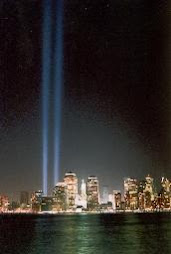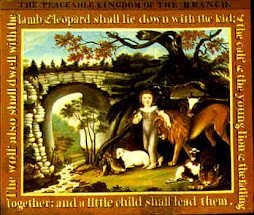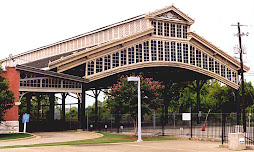 My friend and I practiced law in the same space for around eight years, before he moved away and married another dear friend. He was only 63 years old when he died, and it was a shock to me to hear of it. He had been suffering from advanced melanoma for over a year, but he didn’t want anyone to know. I won’t name him here because he was a private person and wouldn’t want that, but many of you will recognize his photo and know him for the true friend that he was and is.
My friend and I practiced law in the same space for around eight years, before he moved away and married another dear friend. He was only 63 years old when he died, and it was a shock to me to hear of it. He had been suffering from advanced melanoma for over a year, but he didn’t want anyone to know. I won’t name him here because he was a private person and wouldn’t want that, but many of you will recognize his photo and know him for the true friend that he was and is.A person of privilege like my friend has many options that most of us don’t enjoy, and that was my friend’s life until he reached a point of awareness in the 1960's. Like many of us, he turned from the traditions of his small Alabama town and sought answers elsewhere, leaving a post on the city council and riding off on his motorcycle, “Easy Rider” style. He had some connection with the American Indian Movement and then came to see the my priest friend (yes, the one in the orange jumpsuit below--most of my friends wear their politics well, don't they?), who introduced him to another side of life, that of the wealth of love among the poor black communities of West Alabama’s Black Belt area. He and I were mere acquaintances back then, as we both worked in a Congressional campaign for a progressive woman who eventually lost her race, but I didn’t really get to know him until years later. I had been practicing law a few years and was looking for office space close to home. I had my baby boy in a basket when I visited the house he had renovated for his own law practice space. There were a slew of other young lawyers there, also renting space from him. We hit a deal immediately, and he helped me outfit the office and get settled.
As we grew closer as colleagues, our friendship became more personal, and we spent time at the office discussing the law and politics. There were also fun times together with family and friends. He especially enjoyed the company of my young son and also his brother who was born a short time later. For the older son's first birthday, he gave him a Mr. T doll with such a fierce demeanor that my son tuned up and bawled. It was all we could do to stifle our chuckling as we consoled him. My second son got a more comforting gift, a red Radio Flyer wagon with detachable wood sides (here's a photo of one just like it--with somebody else's children).
 I will never forget lying in the hospital bed just hours after giving birth and hearing those squeaky new wheels rolling down the hall.
I will never forget lying in the hospital bed just hours after giving birth and hearing those squeaky new wheels rolling down the hall.He was a fierce believer in civil rights and had no use whatsoever for the racist institutions we grew up in. He had maintained a close relationship with an elderly black woman from his hometown who had reared him when his parents died early on, and he often made reference to things she had taught him. Others of his station would have treated her as merely a household servant, but to my friend Sallie Jenkins was his mother.
We seldom saw each other after he moved away, but when we did, he would quote Chief Dan George: “My heart soars like the hawk to see you.” He made all his friends feel welcomed in such a way.
Before he died, he instructed his widow to bury his ashes in the home town he refused to visit unless it was to see Sallie, and not to bury them in the segregated white cemetery, but in the black cemetery next to her grave.
We will miss this fierce warrior, who as I write as being welcomed into the tribes of the Big Sky.




 was in Birmingham, at the former
was in Birmingham, at the former 




